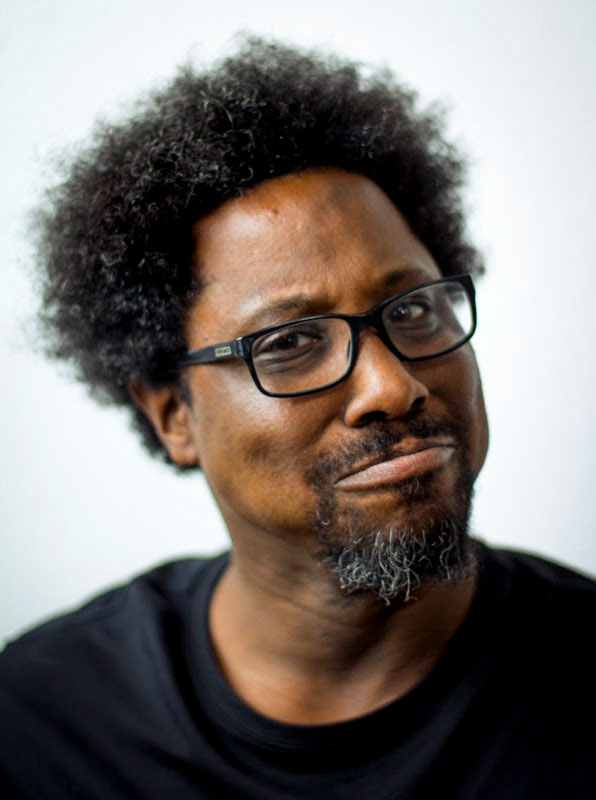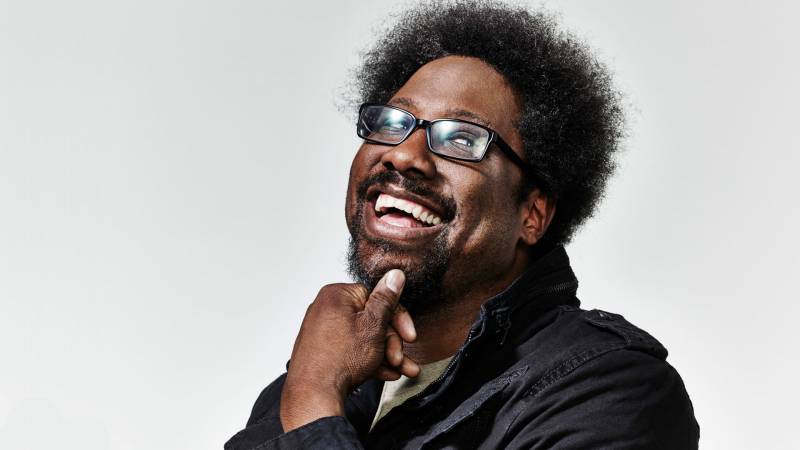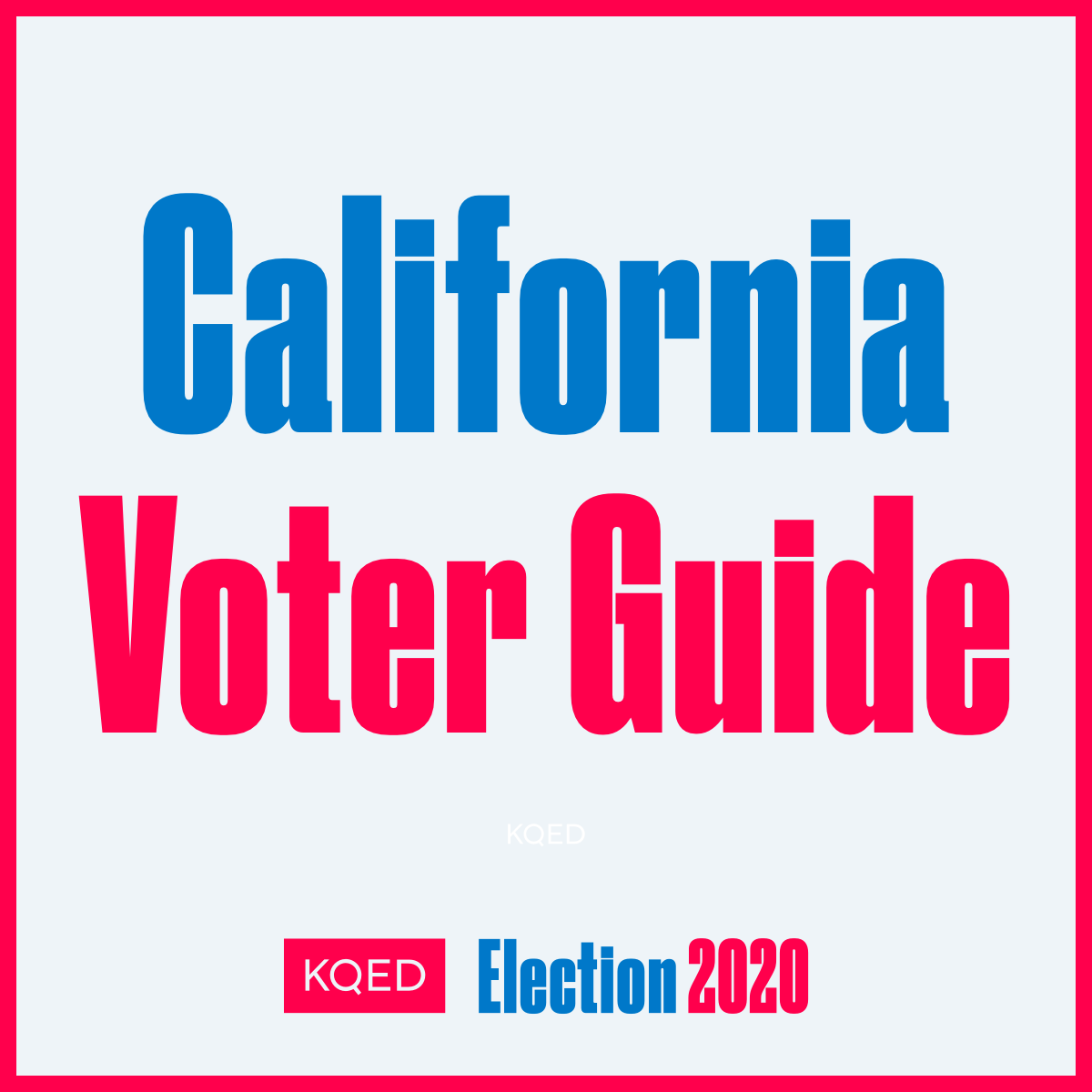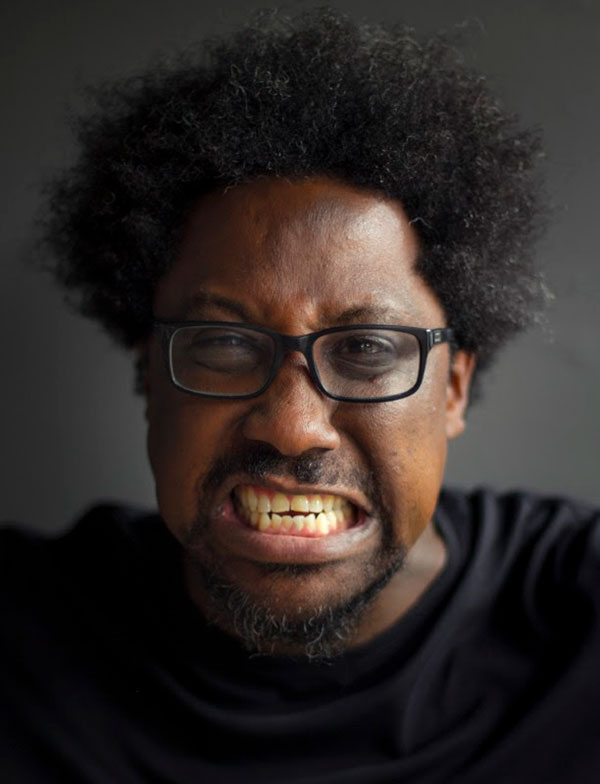In 2020, the United States faces an election like no other. Citizens will vote in the midst of a global pandemic, severe climate change, an uprising for racial justice and an administration that has eroded the norms of democracy. In ‘What’s on Your Ballot?,’ KQED checks in with ten different artists, activists and cultural figures about the issues on their minds and their hopes for the country.
The day before I speak to comedian W. Kamau Bell, I wake up to a news alert: “President Trump refuses to verbally commit to peaceful transfer of power.” As we enter the seventh month of the COVID-19 pandemic in the U.S., terrifying but frequent headlines like these are a daily source of fear and trepidation, and a harsh reminder of the state of our nation.
At a moment when unity seems to be painfully absent in the country, Bell’s work on his Emmy Award-winning show United Shades of America seems more relevant than ever. When I catch him in a rare free moment between work calls and shooting a new season, I find a familiarity in the way he speaks: a classic Bay Area groundedness that feels like home, but also a layer of brutal realism, informed by his experiences and tough conversations with Americans of all backgrounds, and buffered by his humor. We discuss everything from Ghanaian citizenship and the prospect of a talent exodus from America, to the importance of down-ballot voting to create local change, to his least favorite question: “Are you hopeful?”
After we hang up the phone, I realize I can’t quite answer that question myself. But at a time when the future feels as uncertain and chaotic as it does hopeless, I do feel a greater sense of clarity—and for that I have Bell to thank.—Samuel Getachew

As we head into the election, what do you make of the political climate in America today?
I think it’s really important for us all, but especially for young people, to realize that this is not how things are supposed to go. This is not just like, “Oh, we elected a Republican and then we elected a Democrat and we elected a Republican.” That this is not the normal state of things in America and that it is extraordinary.
This is the part of history that they write about. And I really think the identity of this nation is at stake right now, so I don’t think there’s any way to overstate that. While voting is a big part of it, that’s not going to solve all of our issues. It’s really about, does the United States have the appetite for true structural change in nearly every institution?
This is the first election that I’ll be able to vote in, and I sympathize with the frustration that a lot of my peers are expressing with the failures of electoral politics. What would you say to those who feel that voting is futile?
I would say look at AOC. I would say look at Cori Bush, who is running for office. Look at Ilhan Omar. Look at Iyanna Presley, Rashida Talib. Those are women of color who maybe didn’t even think to run until a few years ago. Certainly the idea we would have those women in high-level public office, all of them at once, seemed like a fantasy.
We get focused on the presidential election every four years, I think to the detriment of local elections, which are how you can really drastically change your community. Even if you don’t know all the ins and outs, do some research to see if there’s a group you align with politically—like, in San Francisco, there’s the League of Pissed Off Voters—and then they have voting guides you can follow. Don’t let any one person be your source of knowledge about this stuff. Make sure you look into multiple sources.
Local elections are how you can have a say in the school budget, or how police funds are distributed. And you can actually be a part of that change. If you’re 18 now, and you want to run for office—or you’re a person of color, a woman of color, or Black or indigenous or trans—this is your time. So I would say don’t leave it up to the white guys because they have totally fucked it up.





